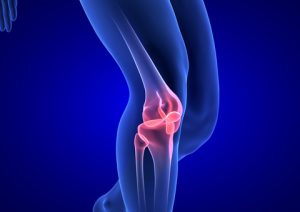Knee pain: An overview:
Your knee is a vital joint that holds your lower body, particularly your legs. You may suffer knee pain at any age; as it can happen due to a type of reason. It is vitally essential to complete medicines as soon as you notice knee pain signs. Any knee pain home treatments prove to be helpful. Depending upon the diagnosis from a knee pain specialist, physiotherapy or surgical treatment may be necessary for knee pain relief.

The causes:
There are several knee pain causes as your knee joint pain can be caused to any part of the knee. The significant knee pain problems include irregularities in the knee joints such as femur, tibia, and fibula. Again, the problem may persist with the kneecap, tendons, ligaments, or meniscus.
The following are the major knee pain causes:
- Knee Injuries: An injury to any inner part of the knee, including ligaments, cartilage, and the sacs; causes knee problems.
1.) Damage to any of the four anterior cruciate ligaments that join your thigh bone with the shinbone is a usual cause of knee difficulties among sports-persons.
2) Fractures on the kneecap due to accidents or falls and dizziness of these bones due to other pathological situations also cause knee joint pain.
3) Sudden twists on your knee may produce separation of meniscus acting as a suspension element, leading to knee pain.
4) Pain in the sacs due to some knee damage causes undesired friction and leads to sudden knee pain too.
5) Pain in tendons joining the muscles with the bones also generates knee pain.
- Mechanical issues: Another major problem of knee pain can be many mechanical problems such as degeneration of bone leading to breakage of cartilage, tightness in the iliotibial band, dislocation of the kneecap, pain in your foot or hip, and so on.
- Various types of arthritis: There are several types of arthritis; such as gout, septic arthritis, pseudogout, rheumatoid arthritis, and osteoarthritis that cause significant knee pain.
- Other issues: Sudden knee pain is commonly found in athletes. This is injury between the kneecap and the thighbone. Any disorder or issues with tracking of kneecap also causes knee pain.
Tests for knee pain:
The specialists carry out the following tests to determine the severity of your knee joint pain:
- X-Ray: This is a general imaging test to determine the bone fractures and find the causes of knee pain signs.
- Ultrasound: Real-time pictures of soft tissues are taken holding your knee in different situations.
- CT Scan: This imaging test takes inner cross-sectional images to diagnose knee problems such as bone issues and fractures.
- MRI: In this test, the specialists use radio waves and magnets to obtain 3D images of the inner portion of your knee. This test gives thorough know-how about the causes of knee pain after running and other related issues.
- Laboratory analysis: Lab test of your blood and the fluid from within your knee might be required in case of inflammation or internal infection.
Treatments:
The doctor decides and executes the order of treatment, depending upon the cause and acuteness of your knee joint pain. The focus would be to reduce knee pain syndromes and a thorough knee pain relief with a multi-dimensional approach.
Medication: The physicians prescribe medicines for knee pain relief and internal corrections to treat underlying medical conditions.
Physiotherapy: The specialists design your exercise program to improve your body movements, strengthen the muscles around your knee, improving flexibility, and gaining stability. This can be an efficient knee pain treatment.
Injections: Depending upon the type of pain and pain, sometimes doctors inject medications such as Hyaluronic acid to increase mobility; Corticosteroids for relief from arthritis; PRP for strains and internal injuries.
Surgical treatment: The expert doctors also recommend and execute surgeries for arthritis, partial and/or total knee replacement.
Home Remedies:
Many knee pain home medicines help you defeated knee joint pain. You can decide the proper medicines at home if your pain is sustainable. Again, it is necessary to advise your specialist before choosing the right remedy for you.
- Strengthening exercises
- Keeping proper body posture and support
- Massage therapy
- Aromatherapy
- Acupuncture
- Heat and Cold
- Tai Chi
- Compression and Elevation and so on.
It is advisable to rely on the experts for these knee pain home medications. You can study every solution in detail before adopting one for yourself. We hope that our suggestions will help you select a suitable knee joint pain treatment and help you get rid of your knee pain in the long run.
